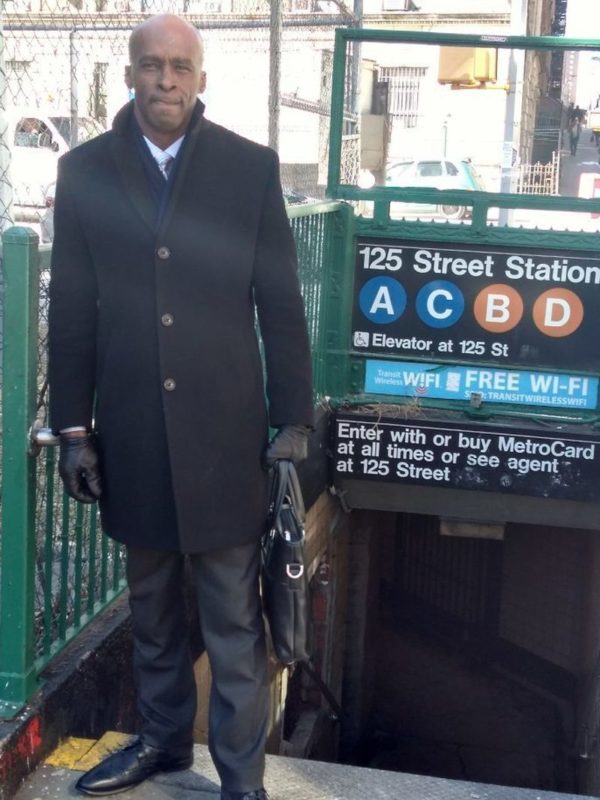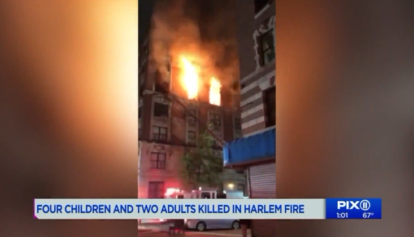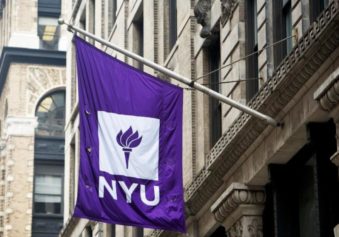A New York University professor was issued a summons earlier this year after jumping the turnstile at a Harlem subway station where the MetroCard machines were broken.
Now, a local advocacy group is demanding the NYPD’s inspector general investigate racial disparities in police enforcement of fare evasion in the city’s subways.

Professor Terrance Coffie alerted police after they stopped him to the broken turnstile machines, but officers said they were already aware. (Photo: New York Daily News)
In a letter, the Legal Aid Society called on Inspector General Phil Eure to look into a ticket professor Terrance Coffie received after bypassing the turnstile at the St. Nicholas Avenue station in January, the New York Daily News reported. Coffie, an adjunct professor who teaches about community policing and discretionary enforcement, recalled that none of the station’s three MetroCard machines were properly working that day.
Thus, he was faced with the dilemma of either being late to work or using the station’s security gate to catch his train.
The professor said he didn’t realize his MetroCard, a reloadable card used to ride the city’s transit system, was out of cash until he was at the station headed to work Jan. 11. Several commuters were huddled around the station’s three machines, but Coffie didn’t think much of it. He soon learned the large crowd had formed because the machines were only taking coins.
“I don’t walk around with three dollars worth of coins in the morning,” he told the New York Daily News.
Like hundreds of other morning commuters hurrying to get to work, Coffie bypassed the turnstile and went through the security gate instead. Moments later, the professor said he was stopped by four plain-clothes police officers who ticketed him for fare evasion.
Coffie alerted police to the malfunctioning MetroCard machines, an issue officers said the department and Metropolitan Transportation Authority officials were already aware of.
“That’s when the situation really kicked in,” he recalled. “Are you saying to me that you are consciously aware that there is a malfunction, but instead of assisting the patrons, what you chose to do is be in a disclosed location to surveil the situation and issue summonses?”
The professor saw the indent as a case of police exploiting the broken MetroCard machines in order to ticket subway riders in minority neighborhoods. Coffie said he reached down in his pocket for his phone to film his encounter with officers, but was threatened with arrest.
In the end, he was issued a $100 ticket and everyone walked away safely.
Lawyers with the Legal Aid society agreed with Coffie’s assertion, however, and accused the NYPD of intentionally targeting minority communities with “fare evasion strike teams.” Ben Rutkin-Beaker, a lawyer with the organization, called it a “wrong-headed approach to try to bridge budget woes on the backs of riders.”
The NYPD and transit officials have denied the claims, saying the agencies are “committed to a fair response to a citywide problem.” As reported by the New York Daily News, fare evasion costs the city’s transit system almost $215 million each year. Moreover, data shows that almost 90 percent of tickets for fare skipping are issued to Black and Latino riders.
“The NYPD has implemented a new fare evasion policy, moving from arrest to summonses, and continues to work closely with the MTA to increase awareness with signage giving people very direct warnings that fare evasion is illegal,” the police department said in a statement.
Commuters can appeal summonses online.


